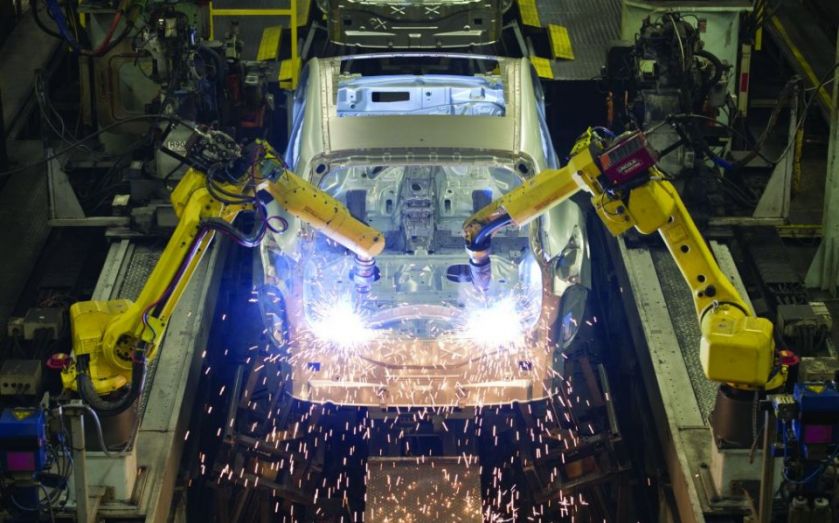Britain could lead a robotic revolution with cost savings of 16 per cent by 2025

By 2025 the country’s workforce could look very different
The UK is set to be among the leading adopters of industrial robots over the next decade, benefitting from improved productivity and a huge reduction in labour costs.
While global average cost savings from the use of robots is expected to be around 16 per cent by 2025, Britain’s fast adoption is expected to push savings nearer to 21 per cent, according to a report out today on the global impact of robotics from the Boston Consulting Group (BCG).
“We’re seeing a fundamental trend where the cost of robotics are getting so low that it’s fundamentally changing the calculus of manufacturing, and for us that’s a big sea change,” BCG senior partner, managing director and co-author of The Shifting Economics of Global Manufacturing, Harold Sirkin told City A.M.
The report predicts that the UK’s adoption of industrial robots in industries like automotive engineering and manufacturing will outpace that of Germany, France and Spain, with 45 per cent of automatable tasks handed over to robots by 2025.

The cost savings from this change could be tremendous for UK industry says Sirkin: “In the US a spot welding machine will do welds for about $8 an hour, while a human would cost about $20 an hour to do the same.”
Although BCG’s report predicts a far smaller workforce, those working in the robotics industry believe the use of robots could result in a larger, more skilled workforce.
“As companies adopt robots they will employ more people, it sounds contradictory, but you’ve got growth and increased productivity due to automation making businesses more competitive and therefore they’re expanding,” says Fraser Reid chief executive of Cyber-Weld, an Oxfordshire-based supplier of robotic welding solutions to businesses including Jaguar and Land Rover manufacturer Sertec.
His comments were supported by Unite assistant general secretary Tony Burke, who told City A.M.: “As part of a future industrial strategy, ministers need to ensure that robots are built by skilled workers in the UK – and structures need to be in place to achieve this goal.”
“The march of the machines must be harnessed to create thousands of jobs for skilled workers and apprenticeships in Britain’s manufacturing sector.”
Indeed the real danger for Britain’s workforce, Reid says, could be if industry fails to lead the robotics revolution. “I’ve been in the robotics business for 35 years and I’ve never seen jobs taken because of robots… If we don’t invest in robots and automation, then jobs will definitely go because we won’t be competitive.”